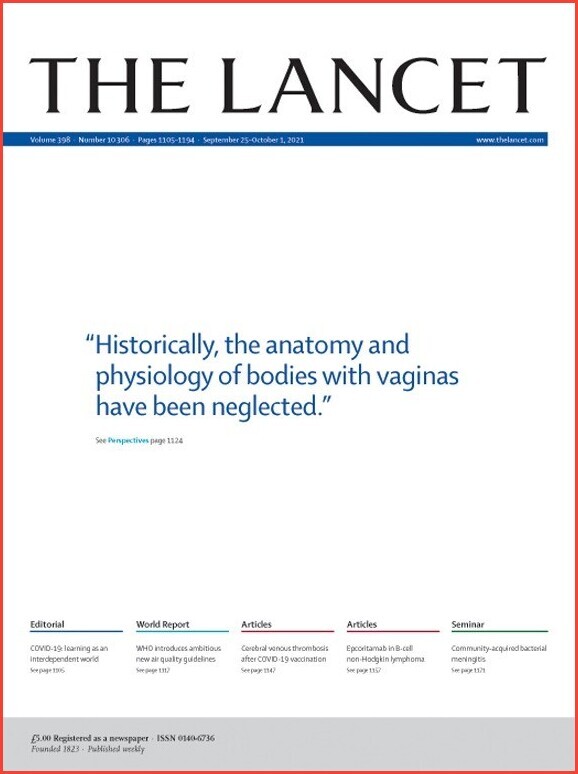‘The Lancet’ enters the transgender word wars

The word “bizarre” is becoming increasingly shop-worn in articles about the transgender movement, but it’s difficult to find a more accurate and less offensive synonym. The latest incident concerns the hitherto inoffensive word “woman”.
This week the American Civil Liberties Union was pinged for censoring texts from the late Supreme Court Justice and feminist icon Ruth Ginsberg. In tweeting snippets from some of her writing, the ACLU substituted the word “women” with the gender-neutral word “people”. There was an outcry and the ACLU vowed never to do it again.
More creative substitutions under the banner of trans-inclusive language have included “individuals with a cervix”, “people who menstruate”, “menstruators”, “birthing parents”, “pregnant people”, or “gestational parents”.
The most significant was a single sentence on the September 25 cover of The Lancet, one of the world’s leading medical journals: “Historically, the anatomy and physiology of bodies with vaginas have been neglected.”
Is that all women are, many people asked — “bodies with vaginas”?
The editor, Richard Horton, was forced to issue a less than heartfelt apology for conveying “the impression that we have dehumanised and marginalised women”. He explained:
At the same time, I want to emphasise that transgender health is an important dimension of modern health care, but one that remains neglected. Trans people regularly face stigma, discrimination, exclusion, and poor health, often experiencing difficulties accessing appropriate health care. The exhibition review from which The Lancet cover quote was taken is a compelling call to empower women, together with non-binary, trans, and intersex people who have experienced menstruation, and to address the myths and taboos that surround menstruation.
- How long can you put off seeing the doctor because of lockdowns? - December 3, 2021
- House of Lords debates assisted suicide—again - October 28, 2021
- Spanish government tries to restrict conscientious objection - October 28, 2021
